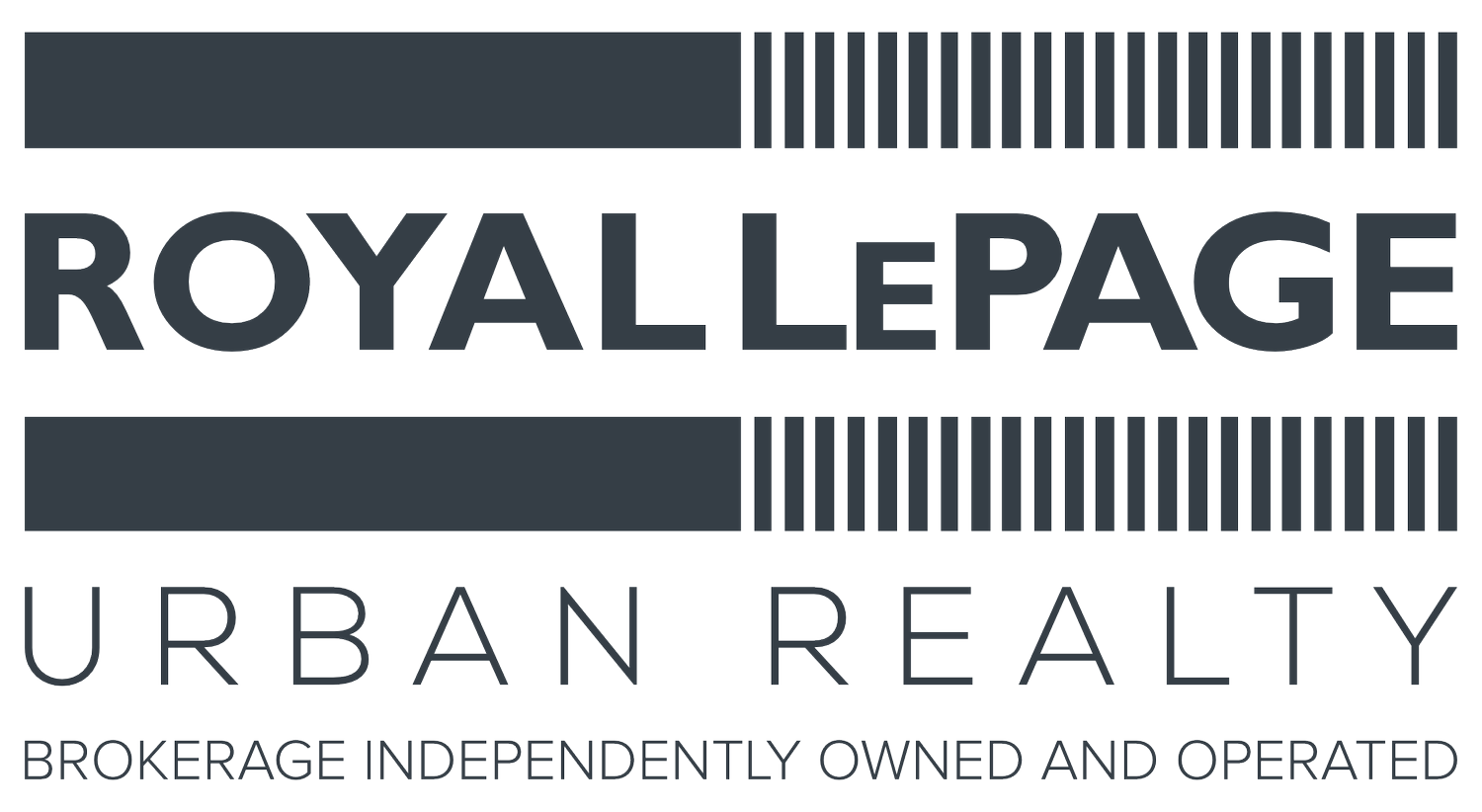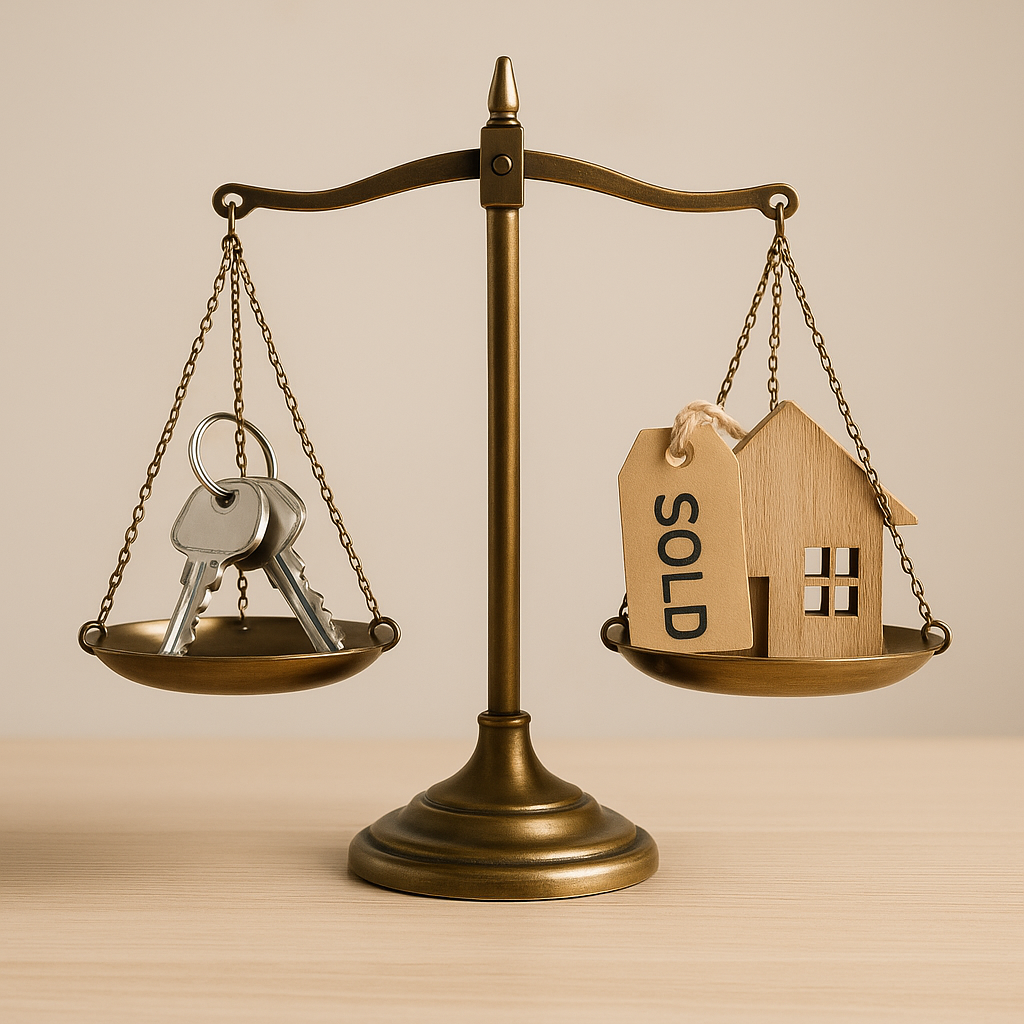Should You Sell Before You Buy? Here’s How to Decide
The Big Question
If you're planning to move, there’s a question that always comes up early: “Should I sell my current home before buying the next one?”
Having helped clients on both sides of this, I’ve seen how different each situation can feel — and how important it is to make a decision that feels right for you.
In a market like Toronto’s — where timing, competition, and financing all play a role — the answer isn’t always straightforward. For some, selling first brings peace of mind. For others, it creates more pressure than it’s worth.
Let’s break it down clearly so you can move forward with a strategy that actually works for your situation — not just what the internet says you “should” do.
Selling First: Why It Works (and When It Doesn’t)
Pros of Selling First:
You know your exact budget.
Once your current home is sold, you’ll have a clear picture of how much you can comfortably spend on your next place. You’re not estimating based on what you think your home might sell for — the money is in-hand or locked in, which makes budgeting and planning much easier.You're not juggling two mortgages.
Selling first eliminates the financial strain of carrying two properties at once. That means no double mortgage payments, property taxes, utilities, or home insurance costs — which can quickly add up, especially if you’re unsure how long your home would take to sell.More control over your timeline.
When you’ve sold first, you’re in a better position to plan your next steps without pressure. You can pick a purchase closing date that suits your schedule instead of trying to coordinate two complex deals simultaneously. You also avoid having to rush into an offer just to “make the timing work.”You have time to cleanly close one chapter before starting the next.
For a lot of people, the emotional and logistical load of buying and selling at the same time can be overwhelming. Selling first allows you to focus on one move at a time, and gives you the breathing room to plan your purchase with less stress.
⚠️ Considerations:
You may end up between homes.
If your sale closes before you’ve found a new home, you might need to rent temporarily, stay with family, or move your belongings into storage. This can add hassle, expense, and extra steps to your transition.It can create pressure to buy quickly.
Once your home is sold, especially with a closing date on the calendar, you may feel rushed to find your next property. That kind of time pressure can make it harder to be picky — and you may settle for something that’s not quite right just to avoid being without a home.Prices can shift between transactions.
The market doesn’t pause while you transition. If prices go up while you’re in between selling and buying, you might end up paying more than expected. If they go down, it could work in your favour — but timing things perfectly is rarely guaranteed.If you are looking to sell download my Seller’s Guide for a comprehensive look at the process
Buying First: Where It Makes Sense
Pros of Buying First:
You get time to find the right home.
Without the pressure of needing to buy before your sale closes, you can take the time to shop carefully. This gives you a better shot at finding a home that checks all your boxes — location, size, layout, timing — instead of settling because you're under the gun.Smoother move.
When you buy first, you can often align your sale and purchase dates more easily, which allows for a direct move from one property to the next. That means no need for temporary housing, storage units, or paying movers twice.You might not need to sell right away.
If your financial situation allows, you can wait to list your current home until the market is stronger or your new home is fully ready. This can also give you time to prep or stage your property for sale without living in it.
⚠️ Considerations:
You’ll need strong finances.
Buying before selling means carrying two homes — and that means two mortgage payments, two sets of bills, insurance, property tax, etc. Even if it's only for a month or two, the costs can add up fast. Most people need bridge financing or a sizable financial cushion to make this work comfortably.It adds risk.
If your current home doesn’t sell as quickly or for as much as you expected, you may end up needing to lower your price or adjust your plans. This can introduce stress or financial strain, especially if you’re relying on a certain sale amount to fund the next step.Market timing still matters.
If you buy when the market is strong and sell during a slowdown, you could end up paying top dollar on the way in and getting less on the way out. This mismatch can hurt your bottom line — especially if your purchase and sale aren't close together in time.
If you are looking to buy download my Buyer’s Guide for a comprehensive look at the process
The Importance of Staying in the Same Market Cycle
One thing that often gets overlooked is this:
If you’re buying and selling in the same market, things usually balance out.
Let’s say you feel like you’re “losing” on your sale because prices have dipped — the upside is, you’re likely getting a better deal on your next purchase too. On the flip side, if you sell for top dollar in a hot market, you’ll probably be buying in that same market at higher prices.
The real risk comes when you sell in one market and buy in a completely different one.
That’s why timing both moves close together — even if you do them in reverse — helps keep the math fair.
My Take
There’s no one-size-fits-all advice when it comes to timing a move. Both strategies come with their own risks and rewards, so to me, the most important thing is that you feel confident and comfortable with your decision.
I believe in helping people make the right move for themselves — based on facts, risk tolerance, and what actually makes sense for their life.
In many cases, clients feel more at ease selling first — especially when they want a clearer sense of their purchase power before making any big decisions. Even when buying first looks good on paper, it can feel riskier emotionally, and that stress alone can sometimes shape the entire experience.
When someone is upsizing, I always take a close look at financial readiness. Is this a stretch, or is it sustainable?
For downsizers, the focus shifts. It’s less about finances and more about long-term lifestyle — making sure the next space truly works, especially for clients approaching retirement or planning their “forever home.”
Everyone has their own timelines, priorities, and non-negotiables. My job isn’t to make the decision for you — it’s to help you see it clearly, so you can move forward with confidence.
Need Advice? I’m Here to Help.
If you’re curious about how things are moving in your specific area — or you just want to talk strategy — feel free to reach out anytime. Whether you're ready to jump in or just gathering info, I'm happy to help you make sense of the market.


